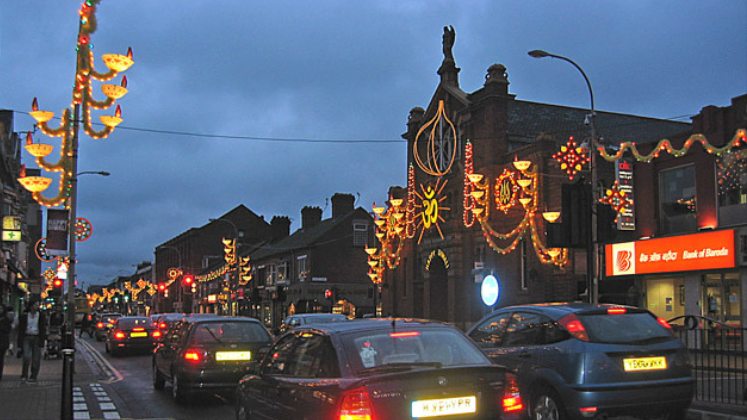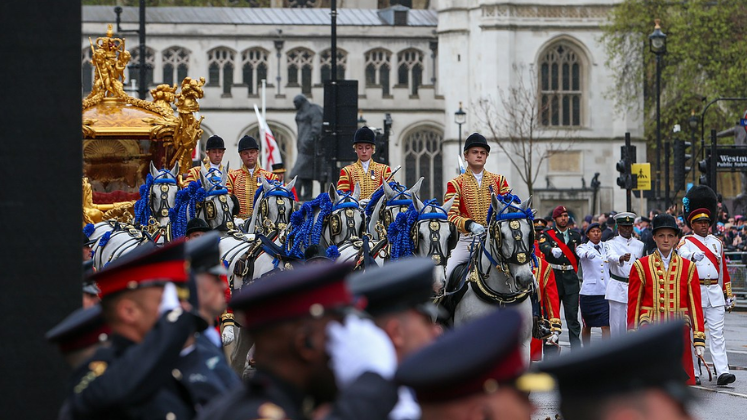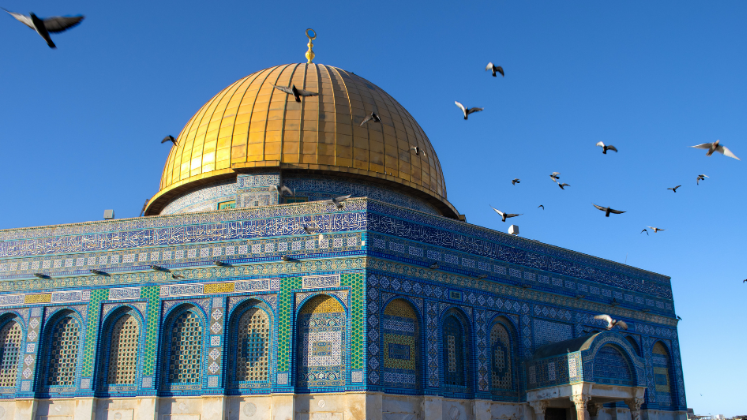In November 2023, the Bridge Initiative released a new report into the nature and presence of Hindu nationalism in the UK. Speaking to a country absorbed in conversation around multiculturalism and religious tensions, Chris Allen outlines what we can learn from Leicester and the rest of this report.

A year on from the disturbances that took place between Hindu and Muslim communities on the streets of the English city of Leicester, Georgetown University’s the Bridge Initiative and the Community Policy Forum have published a new report, “Hindutva in Britain”, which sheds light on the pivotal role of Hindu nationalism – also known as Hindutva – in the unrest. The result of the convergence of international and local dynamics, the report sets out how an ideology with origins in India has been able to exacerbate longstanding inter-community tensions. Highlighting how online voices (both locally and globally) used social media to inflame tensions and spread mis- and dis-information, the report also found that those associated with the Hindutva movement amplified Islamophobic tropes and stereotypes as a way of shifting the narrative away from the danger they posed.
While decades old, Hindutva is a term that will be known to many and new to some. This article responds to this, drawing on findings from the report and my own experience from being appointed to lead the Independent Review into the Leicester disturbances in an attempt to better understand Hindutva in today’s Britain. It does this by first explaining what Hindutva is and where it came from, tracing its evolution from the past to the present. From here, it contextualises Hindutva in relation to last year’s disturbances and importantly, to Britain more widely. Finally, it reflects on the future potential for Hindutva to not only continue to amplify Islamophobia but to catalyse further disturbances.
Understanding Hindutva
Despite being a relatively new term in the context of Leicester and Britain, Hindutva has a longer history. Before considering that history, it is important to stress that Hindutva is distinct and different from Hinduism, a religion that has more than a billion adherents worldwide. Hindutva is not a religion but a political ideology that believes in the hegemony of Hinduism in India and which ties Hindu-ness to the identity of the nation: the goal being to establish India as a Hindu-only nation. An ethno-nationalist ideology, Hindutva took inspiration from European fascism including Hitler’s Nazis and Mussolini’s Italy. One such organisation is the Rashtriya Swayamsevak Sangh (RSS) a paramilitary organisation that in today’s India has in excess of four million volunteers all of whom swear an oath of allegiance and take part in quasi-military activities. A lifelong member is the Indian Prime Minister, Narendra Modi, whose ruling party, the Bharatiya Janata Party is also the political wing of the RSS. Currently, Indian politics cannot be disentangled from Hindutva.
Unsurprisingly, Hindu nationalism has flourished under Modi’s leadership: the report noting how it has become more assertive, militant, and violent. One way this has found form is in the expression of hatred towards religious minorities, especially Muslims. As the report goes on, this has resulted in a sharp increase in hate speech, open calls for violence, legislation that renders Muslims second-class citizens, and the rewriting of history in education, in the renaming of places, and the destruction of mosques. A 2022 report by the Bridge Initiative claimed the first eight stages of genocide were evident in India at the time, where “daily episodes of harassment, public beatings and mob assaults, destruction of property, and lynchings that have created an atmosphere of fear for the country’s 200+ million Muslims”.
A catalyst for Leicester’s unrest
The RSS and Hindutva’s sphere of influence extends way beyond India’s borders to the United States, Canada, and Britain, among others. Without doubt, this includes Leicester. While the initial response of many in the city was to point the finger of blame at a cricket match between India and Pakistan, the potential involvement of Hindutva was clear from early on. This was no more apparent than when 200-plus Hindu men marched through a Muslim-majority area of east Leicester wearing masks, hoodies, and balaclavas, chanting “Jai Shri Ram” (meaning “Hail Lord Ram”) a phrase synonymous with Hindu nationalist violence in India. As I wrote in a piece for the Conversation at the time, there was an urgent need for the Independent Review to examine the role of Hindu nationalism in stoking inter-community tensions in Leicester and the UK.
It is fair to say that at the time, few in the city would have been aware of the presence of Hindu nationalism or how it was relevant to the disturbances. Interestingly, while the local authority, police, and others struggled to respond, local media had already begun to distance the city’s established Hindu communities from any sense of culpability. Even among those who did acknowledge the role of Hindutva claimed it to have been imported into the city by recent migrants from India. Given the extent to which blaming ‘outsiders’ was a feature of the early response to the unrest, it now looks as though this was little more than an attempt to protect Leicester’s reputation as successful multicultural city.
As with the hate campaign that was targeted towards me, social media was used by thousands of Hindutva affiliates both locally and globally to inflame tensions and spread mis- and dis-information. So too did they regularly and routinely seek to amplify certain Islamophobic tropes to both denigrate and distract. As regards the former, this was evident in the hate campaign targeted at me and the unfounded claims that I was an ‘Islamist extremist’. As regards the latter, it was the widespread claims – albeit without evidence – that the disturbances were caused by ‘Islamist extremists’. From my own research, given how the conflation of all things Islam with extremism is largely unquestioned in Britain today, the claims alone would have been evidence enough for some to believe it was true. According to the report, inflaming the tensions was a deliberate ploy by Hindutva affiliates to shift the narrative away from both the presence and threat of Hindutva.
Concerns about Hindutva in Britain
In Leicester, the shadow of the disturbances continues to linger long. Anecdotally, not only is there an atmosphere of distrust but so too do many believe further unrest to be inevitable. This is made all the more possible by those who appear intent upon exploiting the disturbances for political or ideological gain. Whether aligning themselves with Hindu nationalists or downplaying the dangers of Hindutva while simultaneously seeking to amplify certain Islamophobic tropes, the process of reconciliation remains some way off.
Beyond Leicester, the report highlights how organisations that express Hindu nationalist ideas have become more active in the year since the unrest. While there is little evidence of anything nearing a co-ordinated Hindutva network across the country, their involvement in the public and political spaces serves as evidence against those who refute Hindu that nationalism is present in Britain and is something of concern. As the report goes on, some of those organisations have begun to make inroads into the political mainstream, aligning themselves with prominent voices that have long been known to express anti-Muslim rhetoric. That India is an increasingly important economic ally to Britain is another factor to bear in mind.
The influence of Hindutva in Britain is not going to go away.
Image by Kate Jewell






Good article by Chris Allen. Appointed by elected Mayor Soulsby to head an independent investigation, he was hounded off by Hindu complaints that he was biased. That happened after he mentioned Hindutva. The next official investigation was commissioned by Michael Gove and is led by former MP Ian ‘Lord’ Austin, both of whom are associated with the right-wing anti-Muslim Henry Jackson Society. Immediately after the events, the HJS issued a badly written and inaccurate ‘research brief’, saying the suggestion of Hindutva involvement in the Leicester riots was ‘misinformation’. As a Leicester resident and a (white) anti-racist, I was disgusted by the Hindutva march. As a blog writer, I’ve written a longfom post analysing the background to the Hindutva march and its aftermath: ‘The riots: Hindutva in Leicester?’ (https://soothfairy.com/2023/06/18/hindutva-in-leicester-uk-some-facts)